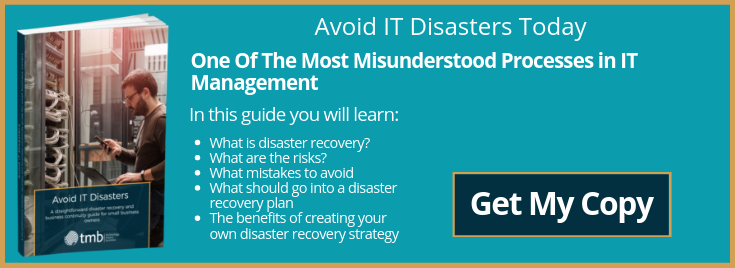How The Coronavirus Highlights The Need For Remote Working
- Anthony
- March 2, 2020
- 01:46 PM
- No Comments
When other businesses are breaking down, you can pick up the slack.
Aside from lots of scary headlines, one thing the coronavirus has generated plenty of is disruption. Offices and schools up and down the country are currently faced with the prospect of having to shut up shop, to help contain the virus and halt its spread. In such circumstances, businesses and other organisations would be wise to ensure they’re set up for remote working.
Although the worldwide death toll has now exceeded 3,000, the COVID-19 coronavirus strain still falls well short of the flu in terms of sheer numbers of people infected. However, the big difference is it’s thought to have a higher mortality rate. It’s that which has shaken authorities and given rise to panic throughout the world - including among businesses.
In London, for example, oil company Chevron closed its Canary Wharf office in fear of coronavirus. Around 300 staff were asked to work from home.
Just a few days later, also in London, the law firm Baker McKenzie sent home more than a thousand workers, after a possible case of coronavirus was detected among its staff.

^ The coronavirus is quickly becoming a huge headache for businesses
These are far from the only instances of businesses temporarily closing in light of the coronavirus. It’s happening all over the UK and all over the world, and huge corporations like Google and Amazon are taking steps to limit employees from traveling to certain countries.
If the UK is hit by a pandemic, the disruption could last for months, according to the UK’s chief medical officer, Professor Chris Whitty. Schools and offices could close, and big public events would have to be cancelled. The cost of all this disruption could be astronomical.
The Coronavirus & Remote Working
Quite a lot is still unknown about COVID-19, but one thing we do know is that it spreads through close proximity to other people. That, of course, is a problem for schools, businesses, social venues and hospitals, where people are bundled together in closed spaces and physical contact is common.
Currently, the guidance for helping to stop the spread of coronavirus is really just standard hygiene. The NHS, for instance, recommends putting used tissues in the bin, covering your mouse and nose when you cough or sneeze, and avoiding close contact with people who are ill.
All good advice, but how many hands do you have to shake in the course of a working day? It might be sensible to avoid doing that if someone has the sniffles, but that could also be construed as rude. Who knows – it might cost you a valuable business deal.
Working remotely avoids that situation from ever occurring.

^ How many times do you do this every day?
How To Run Your Business Remotely
Thanks to the power of the internet, there are now multiple ways to work remotely and to minimise the disruption to your business:
Cloud apps: There are many different cloud apps, but we’re big fans of Office 365 here at TMB Group. As well as cloud versions of applications like Word, Excel and PowerPoint, our Office 365 subscription includes locally installed versions of the entire Microsoft Office suite. These synchronise with the cloud, with documents automatically being saved to our OneDrive accounts. What’s more, it’s easy to collaborate with colleagues, through real-time sharing and Microsoft Teams.
Backup and disaster recovery: If the worst came to the worst and we had to close our offices completely, with no access at all, we'd be covered. Our BDR solution gives us access to an online clone of our servers, so we can spin that up when we need to, and it’s pretty much business as usual.
Cloud telephony: What if your phone rings and there’s no one in the office to take the call? You could easily lose new opportunities. At TMB Group, we avoid this problem by using cloud telephony, and we recommend our customers do the same. Our fully managed telephony service utilises a cloud-based phone network, which can be accessed via a desk phone or, importantly, a PC or mobile phone app. Thanks to this, we can be available on the same phone numbers as usual, no matter where we are.
Mobile devices and device management: The majority of our staff use laptops, which makes working remotely as easy as pie. They can also access their data from their mobile phones and tablets. Those who work on desktop PCs have options too, thanks to the power of Microsoft Intune, a device and user management solution that enables us to determine who and what can access our data and systems. That means we can allow staff to enrol their personal computers on our network and access their work, subject to whatever security requirements we specify.
Is Your Business Prepared For Disaster?
While coronavirus is on everyone’s mind at the moment, it’s not the only reason to consider remote working. It wasn’t that long ago offices were shutting due to the Beast from the East, a huge snowstorm that managed to bring the UK’s infrastructure to its knees, causing billions of pounds worth of disruption.
On top of that, businesses need to consider the possibility of flooding, electrical surges, cyber attacks and other unexpected incidents that could put their IT solutions out of action.
If you haven’t done so already, we strongly recommend looking at your current IT and working out what you would do if you couldn’t get to it or if your staff couldn’t make it to the office. Doing it now could save you a lot of pain further down the line.
Watch Out For Coronavirus Scams!
Reports have been coming in that cybercriminals are exploiting the worry about coronavirus to perpetrate phishing scams.
As always, please be careful about opening emails from people you don't know and attachments you weren't expecting.



